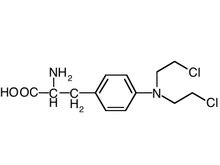What is Multiple Myeloma? How Is It Treated?
What is multiple myeloma?
Multiple myeloma (say: mull-tip-ul my-el-oh-ma) is a kind of cancer. It's caused when cells in the bone, called "plasma cells," grow too much. When this happens, the plasma cells kill the bone around them. The plasma cells also make too much of something called "immunoglobulins." The immunoglobulins cause problems in the blood.
What causes myeloma?
We don't know what causes myeloma. This cancer usually happens in people older than 55 years of age. Slightly more men than women get it. It doesn't usually run in families. Myeloma is more common in blacks than in whites. Fertilizers and insecticides might cause myeloma. This may be why myeloma is more common in farmers.
How does my doctor know I have myeloma?
Several tests can tell if you have myeloma. First, you'll need x-rays to check the areas where you feel pain. Your doctor might take some blood tests. One test measures the kind of immunoglobulins in your blood. Other tests tell if you're anemic (low iron in your blood), if your calcium level is high and how well your kidneys are working.
If the myeloma is in a later stage, you may need more tests. Your doctor might want you to have a magnetic resonance imaging scan of your bones (also called an MRI scan). This scan shows if the myeloma is in your spine.
The only way to be sure you have myeloma is if your doctor uses a needle to take a very small sample of the inside of a bone. This is called "bone marrow aspiration." It can be done in your doctor's office. This procedure hurts a little, but no special care is needed afterward.
How is myeloma treated?
There is no cure for myeloma. However, medicines can help with the pain and make you feel better. You need treatment if you have severe pain, broken bones, a low blood count, many infections or kidney damage. Even with treatment, sometimes your symptoms will be better and sometimes they'll be worse. The two medicines most often used are melphalan (brand name: Alkeran) and prednisone (a steroid medicine).
If you have multiple myeloma, you should try to stay active. Staying active helps keep the calcium in your bones instead of in your blood. Keeping calcium in your bones helps keep your bones strong. You should eat a balanced diet and drink plenty of fluids, too.
Are there side effects of myeloma medicine?
Yes, as with most cancer medicines. You and your doctors will keep an eye on your side effects. You'll probably have blood tests about once a month while you're taking the medicines. When melphalan kills the cancer cells, it also kills some of your body's "good" cells. These good cells are in your bones, lungs and skin. You'll probably lose some hair, but it will grow back after you stop taking the medicine. However, if you have fever, bleeding (like nosebleeds or bleeding gums or bruising), a skin rash or a cough that doesn't go away, call your doctor right away. These are the more serious side effects of melphalan. While you're taking melphalan, you must not get pregnant. Melphalan might hurt the baby.
If the cancer doesn't respond to melphalan and prednisone, your doctor may talk with you about other treatments. These include other medicines, radiation treatments or a bone marrow transplant.
Where can I get more information about multiple myeloma?
You can get information about multiple myeloma from the following group:
The International Myeloma Foundation (IMF)
2129 Stanley Hills Dr.
Los Angeles, CA 90046
Telephone: 1-800-452-CURE (1-800-452-2873)
Internet: www.myeloma.org
COPYRIGHT 1999 American Academy of Family Physicians
COPYRIGHT 2000 Gale Group



